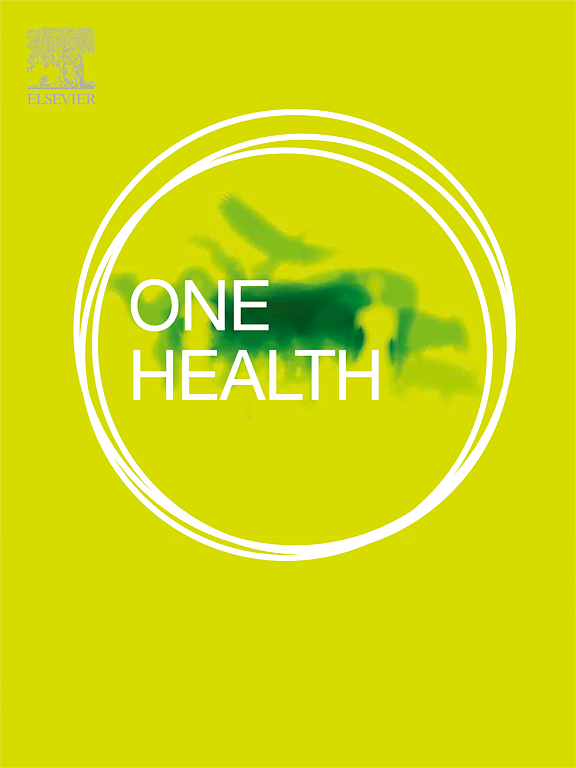IF 4.1
2区 医学
Q1 INFECTIOUS DISEASES
引用次数: 0
摘要
全球卫生挑战错综复杂,需要采取跨越传统界限的综合方法。一体健康"(OH)为解决人类、动物和环境领域交叉的健康问题提供了一种整体方法。抗菌素耐药性(AMR)是跨部门问题和 "同一健康 "挑战的一个典型例子,它突出表明需要考虑多个利益相关者,采取协调一致的干预措施。目前改善 OH 挑战和 AMR 的方法成效有限,这往往是由于缺乏结构化的理论方法来指导设计和开发长期可持续的解决方案。现有框架主要孤立地关注人类或兽医部门,在符合 OH 原则的全面综合方法方面存在差距。本文提出了 "一站式健康挑战的整体参与和适应性响应理论框架"(HEARTf of OHC),这是一种以用户为中心的设计方法,旨在开发可持续和创新的一站式健康干预措施。OHC 的 HEARTf 整合了社会科学、计算机科学、工业设计、教育学和健康科学等方面的知识,以创建针对具体情况的解决方案,满足人类、动物和环境领域终端用户的特定需求。此外,本文还回顾了解决 AMR 问题的现有框架,指出了其局限性,并概述了在解决 OHC 问题时采用跨学科方法的必要性。通过强调以用户为中心的设计、跨学科性和持续评估的重要性,OHC 的 HEARTf 旨在缩小当前战略之间的差距,改进创新解决方案或服务的开发和评估。老年健康中心 HEARTf 是设计、实施和评估老年健康干预措施的通用框架,我们将 AMR 作为案例研究来展示其应用。本文章由计算机程序翻译,如有差异,请以英文原文为准。
Design framework to develop sustainable innovations for addressing One Health challenges
The complexity of global health challenges requires integrated approaches that crosses traditional boundaries. One Health (OH) offers a holistic approach to address health issues at the crossroads of human, animal, and environmental domains. Antimicrobial Resistance (AMR), a prime example of a cross-sectoral issue and OH challenge, highlights the need for coordinated interventions that consider multiple stakeholders. Current approaches to improve OH challenges and AMR have limited success, often due to a lack of a structured theoretical approach that informs the design and development of solutions for long-term sustainability. Existing frameworks focus primarily on human or veterinary sectors in isolation, leaving a gap in comprehensive, integrated approaches that align with OH principles. The proposed framework addresses this gap by offering a structured approach to both implementing and evaluating interventions that consider all three sectors.
This paper proposes the HEARTf of OHC (Holistic Engagement and Adaptive Responses Theoretical framework of One Health challenges), a user-centered design approach aimed at developing sustainable and innovative OHC interventions. The HEARTf of OHC integrates knowledge from social sciences, computer science, industrial design, pedagogy, and health sciences to create context specific solutions that address the specific needs of end-users in the human, animal, and environmental sectors. Additionally, this paper reviews existing frameworks addressing AMR, identifies limitations and outlines the need for a transdisciplinary approach when tackling OHC. By emphasizing the importance of the user-centered design, transdisciplinarity, and continuous evaluation, the HEARTf of OHC aims to bridge the gap between current strategies and improve the development and evaluation of innovative solutions or services. The HEARTf of OHC is a generalizable framework for the design, implementation, and evaluation of OH interventions, where we use AMR as a case study to demonstrate its application.
求助全文
通过发布文献求助,成功后即可免费获取论文全文。
去求助
来源期刊

One Health
Medicine-Infectious Diseases
CiteScore
8.10
自引率
4.00%
发文量
95
审稿时长
18 weeks
期刊介绍:
One Health - a Gold Open Access journal.
The mission of One Health is to provide a platform for rapid communication of high quality scientific knowledge on inter- and intra-species pathogen transmission, bringing together leading experts in virology, bacteriology, parasitology, mycology, vectors and vector-borne diseases, tropical health, veterinary sciences, pathology, immunology, food safety, mathematical modelling, epidemiology, public health research and emergency preparedness. As a Gold Open Access journal, a fee is payable on acceptance of the paper. Please see the Guide for Authors for more information.
Submissions to the following categories are welcome:
Virology,
Bacteriology,
Parasitology,
Mycology,
Vectors and vector-borne diseases,
Co-infections and co-morbidities,
Disease spatial surveillance,
Modelling,
Tropical Health,
Discovery,
Ecosystem Health,
Public Health.
 求助内容:
求助内容: 应助结果提醒方式:
应助结果提醒方式:


